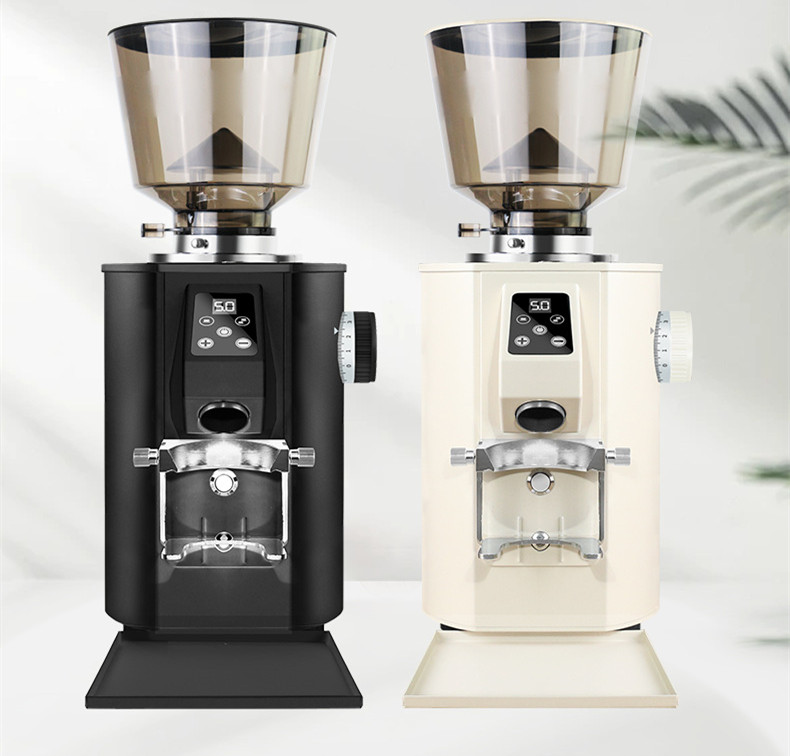Commercial large-scale coffee roasters play a core role in the coffee industry chain. Their application runs through multiple key links such as large-scale production, quality control, process innovation, and industrial collaboration. The specific application scenarios and values are as follows:
First, large-scale production and efficiency improvement
Centralized baking
Commercial large-scale roasters can continuously roast hundreds of kilograms of coffee beans in a single batch, meeting the demands of chain coffee brands and industrial-grade processing plants for standardized and high-efficiency production. For instance, large-scale baking centers can support a daily production capacity of several thousand kilograms through the parallel operation of multiple devices, ensuring the stability of the supply chain.
Optimization of automated processes
Integrated with automatic feeding, temperature control, smoke exhaust and cooling systems, it reduces manual intervention and lowers operational errors. For instance, the intelligent temperature control system can adjust the parameters of the hot air circulation in real time to ensure the consistency of the baking curve and enhance production efficiency.
Second, quality control and process innovation
Precise baking curve management
Through preset programs or real-time monitoring, the baking temperature, time and damper opening can be precisely controlled to meet the diverse flavor requirements from light baking to dark baking. For instance, light-roasted beans retain more fruit acids and floral aromas, while dark-roasted beans highlight caramel and chocolate flavors, catering to the preferences of different markets.
Flavor customization and experimental development
Supports small-batch trial roasting (such as 5-10 kilograms), which is convenient for roasters to test the roasting parameters of coffee beans from different origins and varieties, and optimize the flavor performance. For instance, adjust the roasting strategy for special processing methods of bean varieties (such as anaerobic fermentation and honey processing) to develop differentiated products.
Third, industrial synergy and supply chain integration
Raw material procurement and inventory management
Large-scale roasters need to be equipped with a constant temperature and humidity storage system to ensure the stable quality of green beans. For instance, by recording the baking time, parameters and raw material information through the batch traceability system, the entire process from green beans to finished products can be traced.
Logistics and distribution network optimization
The roasted coffee beans need to be cooled quickly, packaged and delivered to stores or processing plants. For instance, vacuum packaging and cold chain logistics are adopted to extend the shelf life and reduce flavor loss, supporting cross-regional supply chain layout.
Fourth, environmental protection and sustainability
Energy efficiency and emission control
Adopt heat recovery technology or biomass fuel to reduce energy consumption and carbon emissions. For instance, the waste heat recovery system can utilize the heat from flue gas to preheat green beans, thereby enhancing energy utilization efficiency.
Utilization of by-products
By-products such as silver skin and crushed beans generated during the baking process can be recycled for use as fertilizers or biofuels, reducing waste emissions.
Fifth, industry trends and future directions
Intelligence and data-driven
Integrating Internet of Things (iot) technology, it enables real-time monitoring of equipment status and baking data, and optimizes parameters through AI algorithms to enhance production efficiency and quality stability.
Customized and flexible production
Adapt to the market demands of small batches and multiple varieties, support rapid line changeover and flexible production, and meet the personalized needs of boutique coffee shops and independent bakers.
Sustainable supply chain integration
Promote sustainable practices throughout the entire process from raw material procurement to terminal sales, such as the use of fair trade coffee beans and low-carbon packaging materials.


